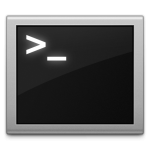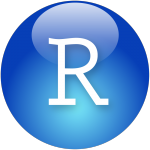 John Russell is a Scholarly Communication Librarian in the UO Libraries. As a member of the Digital Scholarship Center, he helps support new models of scholarly publishing and does outreach, consulting, and teaching for digital scholarship. This term, John is teaching LIB 607: Digital Scholarship Methods. The course is an introductory survey for graduate students that covers a range of topics: data visualization, maps, “distant reading” of texts, and how digital scholarship changes the way scholars think about publishing and teaching. “I try to set up the course so that students get some sense of digital scholarship as it is practiced (through reading scholarly articles) and get some experience working with tools and approaches commonly used by digital scholars. My hope is that the students in this class will try something that strikes them, that gets them engaged enough that they want to investigate more.”
John Russell is a Scholarly Communication Librarian in the UO Libraries. As a member of the Digital Scholarship Center, he helps support new models of scholarly publishing and does outreach, consulting, and teaching for digital scholarship. This term, John is teaching LIB 607: Digital Scholarship Methods. The course is an introductory survey for graduate students that covers a range of topics: data visualization, maps, “distant reading” of texts, and how digital scholarship changes the way scholars think about publishing and teaching. “I try to set up the course so that students get some sense of digital scholarship as it is practiced (through reading scholarly articles) and get some experience working with tools and approaches commonly used by digital scholars. My hope is that the students in this class will try something that strikes them, that gets them engaged enough that they want to investigate more.”
Here’s what John recommends to people new to digital scholarship:
 Learn the command line: “Part of this is my own bias – I use a Linux laptop at home and I like working in the Terminal – but there are some very simple, yet very powerful, commands that allow one to, for example, do quick word counts, see words in context across files, or convert files from one format to another. Learning to work on the command line also instills good practices for file naming, helps students understand how their computers are structured, and broadens ones horizons beyond GUI-oriented software. Prof. William Turkel has a series of tutorials that he uses to teach digital scholarship to his students; I also recommend _The Linux Command Line_ by William Shotts and its companion website
Learn the command line: “Part of this is my own bias – I use a Linux laptop at home and I like working in the Terminal – but there are some very simple, yet very powerful, commands that allow one to, for example, do quick word counts, see words in context across files, or convert files from one format to another. Learning to work on the command line also instills good practices for file naming, helps students understand how their computers are structured, and broadens ones horizons beyond GUI-oriented software. Prof. William Turkel has a series of tutorials that he uses to teach digital scholarship to his students; I also recommend _The Linux Command Line_ by William Shotts and its companion website
 Try R: “I love R – it does everything. You can scrape websites, search and save Tweets, make maps, visualize your data, and do statistical analyses. Matthew Jockers has published a book on doing text analysis with R (requires UO proxy to access) which is an important contribution to literary digital scholarship. For beginners, I recommend Code School’s “Try R” tutorial.”
Try R: “I love R – it does everything. You can scrape websites, search and save Tweets, make maps, visualize your data, and do statistical analyses. Matthew Jockers has published a book on doing text analysis with R (requires UO proxy to access) which is an important contribution to literary digital scholarship. For beginners, I recommend Code School’s “Try R” tutorial.”
Network: “Digital scholarship is very much about community. There are lots of people on campus who know how to do amazing things and who are also more than happy to help others learn to do amazing things, too. Come to NMCC events (like the open house) and ask people what they are working on. Visit the Digital Scholarship Center and tell me what you want to learn – maybe I can help, or I can connect you to people on campus who have similar interests. Fulfill the requirements for the New Media & Culture certificate because you will meet with like-minded faculty and graduate students from different disciplines who will challenge you and point you in fascinating directions.”
Are you a UO faculty member interested in getting involved with NMCC and/or being our next Prof Picks feature? If so, please contact us!

